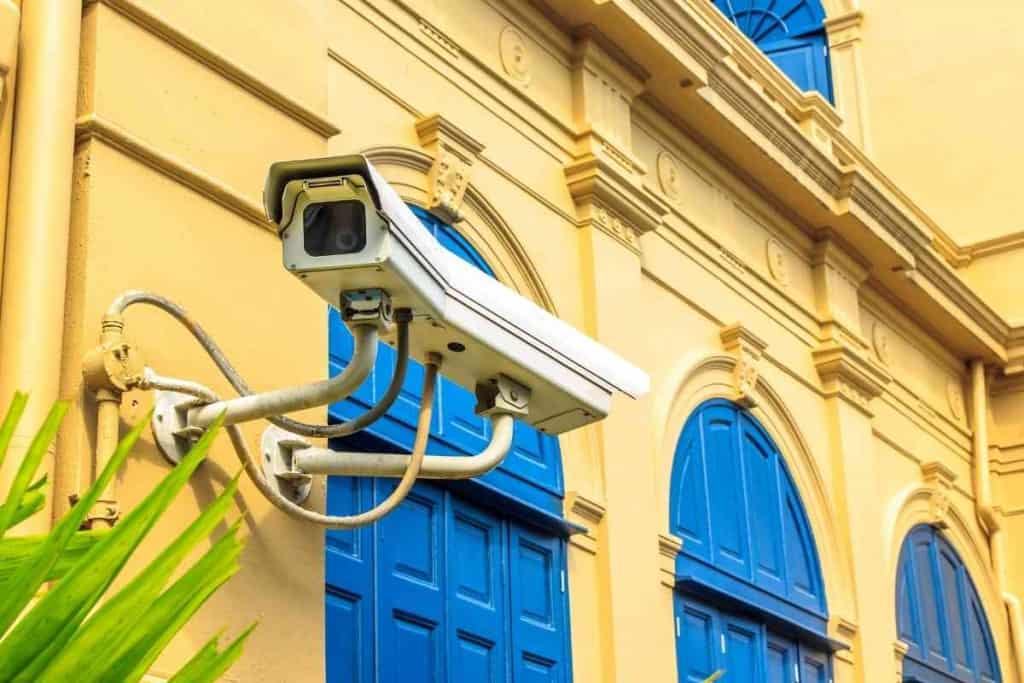Is There A Security Camera That Works Without WiFi?
Every homeowner should consider installing a security camera to their home. Even if your area is particularly known for break-ins, a security camera can help you with a number of other things too, such as keeping an eye on your pets.
But if you don’t have wifi, can you still get a security camera?
Is There a Security Camera that works Without WiFi
You can still install security cameras in areas without WiFi. By using a closed Closed circuit security camera, you can still record security footage even without wifi. These work by manually running analog or digital signals through the home via hard wiring.
Wireless security cameras require a method to transmit data to a receiver or television screen.
This means they require an internet connection.
Bluetooth doesn’t work either.
Bluetooth simply doesn’t have the bandwidth available to transmit large video files wirelessly.
If you want wireless cameras, there’s no option other than having home Wi-Fi.
Locally Stored Data
If seeing your camera’s footage live isn’t important, there are many wireless cameras to choose from.
These devices are easy to find and usually use an SD card to store video and pictures.
There are specially made security cameras that accomplish this, but there are also cameras made for hunting that can serve this purpose.
Hunting cameras often only take photographs when it detects motion. Depending on your scenario, a simple hunting camera could be exactly what you’re looking for.
Is There a Security Camera that Doesn’t use the Internet?

Yes. There are many options for people who don’t have internet
A closed-circuit security camera is exactly what you want to look for.
In fact, many businesses prefer closed-circuit security cameras for their dependability.
They aren’t affected by internet outages and don’t require a high-speed data connection.
These types of systems are widely used for municipal purposes too.
Court houses often use closed-circuit television to conduct meetings, record trials, and certain types of hearings.
Some cities even use closed-circuit television to monitor high crime areas and public spaces.
Closed-circuit security cameras work by manually running wires throughout the home.
The wires connect each of your security cameras to a terminal that in turn connects to a television.
This allows users to have live footage of areas around and in their homes.
As for cameras with self-contained memory or SD card function, they hold a lot less data.
Some models will even require constantly checking and erasing data.
These are still great options if you have several SD cards you can switch out.
They are also great if a person only wants to turn the cameras on when they are away from home for a few days.
Storage and Archiving
Many closed-circuit security systems are connected to a terminal that is much like a DVR device.
The device doesn’t only route the video to a television screen, but it also often has storage capabilities to save footage for an allotted amount of time.
These security systems come in a variety of different storage options, and often allow users to select which resolution to save archived footage at.
The lower the resolution, the older the footage you can have.
Raising the resolution will result in storage being filled up sooner.
You can even set them to not auto erase and wait for manual input once storage is completely full.
Other Types of Cameras
Analog cameras are similar to closed-circuit cameras.
They send the same type of signal and connect to a DVR-like box to display and record video.
While closed-circuit cameras are often used by businesses and municipals, an analog system is what you would normally find in a home.
It is often confused with closed-circuit television, but the methods of transmitting the data are slightly different.
Coaxial cables, while rare, can be used to transmit an HD signal directly to recorders. Cameras that use coaxial connectors are hard to find, but they deliver one of the clearest videos possible.
Finally, we have IP cameras. Their name is a bit of a misnomer.
Standing for internet protocol, IP cameras use a local LAN connection to transmit video data.
In fact, many people believe that these cameras require an outside connection to the internet, but they don’t.
You will still require a router and ethernet cables, but an actual internet connection is not needed.
The cameras are only transmitting data locally, so they don’t need to be connected to an outside source.
The Best Home Security Camera not Requiring Internet
Closed-circuit, analog, and IP cameras are all excellent choices; however, some have advantages over other in some situations.
Closed-circuit systems are a little outdated
They don’t provide as clear of an image as IP cameras, but they are still common enough that you’ll have no problem having one set up.
However, they are still great for businesses who want to have their location monitored 24/7 without needing to erase data constantly.
Closed-circuit systems allow users to monitor their home or business live and record video for later viewing, although in lower detail than we may be used to.
Analog systems also use outdated methods, meaning their time is running out.
There are simply better options available than an old analog security system.
The only reason a person should purchase an analog system in today’s age is if they find a really good deal.
It’ll still get the job done, but the video is much lower quality than other options.
This leaves IP cameras. They transmit digital signal which means it can be transferred easily between other devices.
It also means it is much higher quality. IP cameras are probably the best option for homeowners looking to install a home security system without internet.
The only downside to IP cameras is someone without internet may struggle to install it.
Someone unfamiliar with routers and ethernet cables may require a professional to do the install.